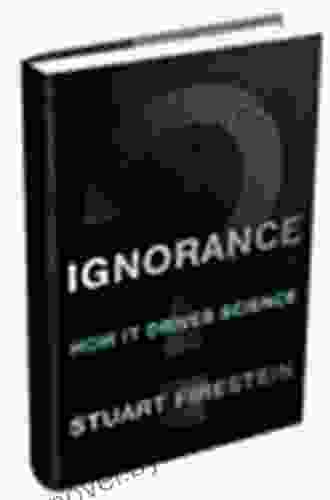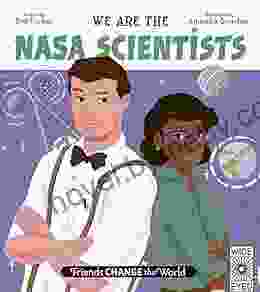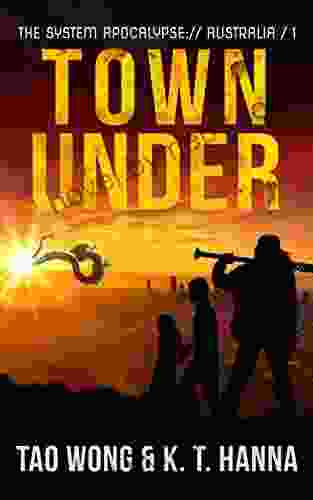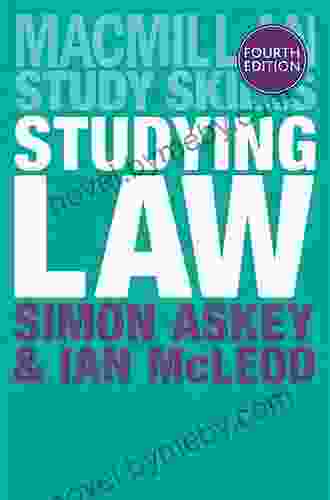Ignorance: How It Drives Science


4.4 out of 5
| Language | : | English |
| File size | : | 272 KB |
| Text-to-Speech | : | Enabled |
| Screen Reader | : | Supported |
| Enhanced typesetting | : | Enabled |
| Word Wise | : | Enabled |
| Print length | : | 208 pages |
| Lending | : | Enabled |
Ignorance is not simply the lack of knowledge. It is an active force that shapes our understanding of the world. In this book, Stuart Firestein argues that ignorance is essential for scientific progress. By embracing our ignorance, we can open ourselves up to new possibilities and discoveries.
Firestein begins by exploring the different types of ignorance. There is simple ignorance, which is simply the lack of knowledge. There is also willful ignorance, which is the deliberate avoidance of knowledge. And there is Socratic ignorance, which is the recognition of one's own ignorance.
Firestein argues that Socratic ignorance is the most important type of ignorance for scientists. It is the recognition that we do not know everything and that there is always more to learn. This attitude of humility is essential for scientific progress. It allows scientists to question their assumptions and to be open to new ideas.
Firestein provides several examples of how ignorance has driven scientific progress. He tells the story of how Isaac Newton discovered the law of gravity. Newton was sitting under a tree when an apple fell on his head. He did not know why the apple fell, but he was curious to find out. He began to investigate the phenomenon and eventually discovered the law of gravity.
Firestein also tells the story of how Charles Darwin developed the theory of evolution. Darwin was a naturalist who traveled the world collecting specimens. He noticed that there was a great deal of variation among different species of animals. He did not know why there was so much variation, but he was curious to find out. He began to investigate the phenomenon and eventually developed the theory of evolution.
Firestein argues that these are just two examples of how ignorance has driven scientific progress. He believes that ignorance is essential for scientific progress because it allows scientists to question their assumptions and to be open to new ideas.
The Benefits of Ignorance
Ignorance has a number of benefits. It can lead to curiosity, which is essential for scientific progress. It can also lead to humility, which is important for scientists to have in Free Download to be open to new ideas.
In addition, ignorance can lead to creativity. When we do not know something, we are more likely to think outside the box and come up with new ideas. This can lead to breakthroughs in science and other fields.
The Dangers of Ignorance
Of course, ignorance can also be dangerous. It can lead to prejudice, discrimination, and even violence. It is important to be aware of the dangers of ignorance and to take steps to educate ourselves.
However, we should not be afraid of ignorance. It is a natural part of being human. The key is to embrace our ignorance and to use it as a catalyst for learning and growth.
Ignorance is not simply the lack of knowledge. It is an active force that shapes our understanding of the world. By embracing our ignorance, we can open ourselves up to new possibilities and discoveries.
Ignorance is essential for scientific progress. It allows scientists to question their assumptions and to be open to new ideas. It can also lead to curiosity, humility, and creativity.
However, it is important to be aware of the dangers of ignorance and to take steps to educate ourselves. The key is to embrace our ignorance and to use it as a catalyst for learning and growth.
4.4 out of 5
| Language | : | English |
| File size | : | 272 KB |
| Text-to-Speech | : | Enabled |
| Screen Reader | : | Supported |
| Enhanced typesetting | : | Enabled |
| Word Wise | : | Enabled |
| Print length | : | 208 pages |
| Lending | : | Enabled |
Do you want to contribute by writing guest posts on this blog?
Please contact us and send us a resume of previous articles that you have written.
 Book
Book Novel
Novel Page
Page Chapter
Chapter Text
Text Story
Story Genre
Genre Reader
Reader Library
Library Paperback
Paperback E-book
E-book Magazine
Magazine Newspaper
Newspaper Paragraph
Paragraph Sentence
Sentence Bookmark
Bookmark Shelf
Shelf Glossary
Glossary Bibliography
Bibliography Foreword
Foreword Preface
Preface Synopsis
Synopsis Annotation
Annotation Footnote
Footnote Manuscript
Manuscript Scroll
Scroll Codex
Codex Tome
Tome Bestseller
Bestseller Classics
Classics Library card
Library card Narrative
Narrative Biography
Biography Autobiography
Autobiography Memoir
Memoir Reference
Reference Encyclopedia
Encyclopedia Robin Arzon
Robin Arzon Peter Watts
Peter Watts Roman Frister
Roman Frister Stuart A Burkhalter
Stuart A Burkhalter Ted Kulfan
Ted Kulfan Pierre Mora
Pierre Mora Russell Means
Russell Means Rebecca Zanetti
Rebecca Zanetti S Kelley Harrell
S Kelley Harrell Rachel Aaron
Rachel Aaron Sebastian Junger
Sebastian Junger Katharine Holabird
Katharine Holabird Richard Killeen
Richard Killeen Richard B Pelzer
Richard B Pelzer Ursula Vernon
Ursula Vernon Rob Knight
Rob Knight Ric Hajovsky
Ric Hajovsky Richard Henry Dana
Richard Henry Dana Sarah Chana Radcliffe
Sarah Chana Radcliffe Leslie Stager
Leslie Stager
Light bulbAdvertise smarter! Our strategic ad space ensures maximum exposure. Reserve your spot today!
 Frank MitchellFollow ·14.9k
Frank MitchellFollow ·14.9k Edward BellFollow ·2.2k
Edward BellFollow ·2.2k David PetersonFollow ·10.9k
David PetersonFollow ·10.9k Allen ParkerFollow ·4k
Allen ParkerFollow ·4k Henry David ThoreauFollow ·2.3k
Henry David ThoreauFollow ·2.3k Mike HayesFollow ·4.8k
Mike HayesFollow ·4.8k Angelo WardFollow ·12.2k
Angelo WardFollow ·12.2k Elmer PowellFollow ·10.6k
Elmer PowellFollow ·10.6k
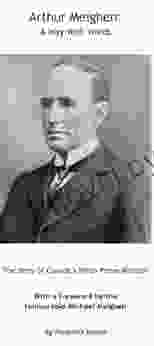
 Mike Hayes
Mike HayesArthur Meighen: A Life in Politics
Arthur Meighen was one of Canada's most...

 Bryan Gray
Bryan GrayVindicated: Atlanta's Finest
In the heart of Atlanta, a...

 Houston Powell
Houston PowellHis to Defend: A Captivating Legal Thriller That Will...
An Unforgettable...
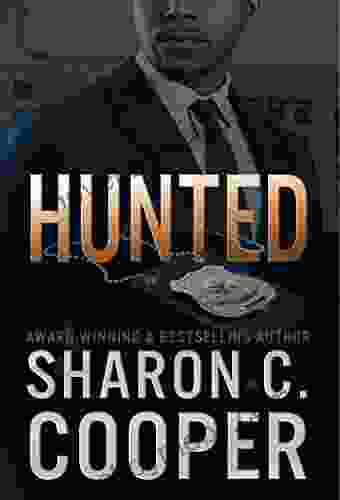
 John Green
John GreenUncover the Riveting Tale of "Hunted: Atlanta Finest" - A...
Prepare yourself for a...
4.4 out of 5
| Language | : | English |
| File size | : | 272 KB |
| Text-to-Speech | : | Enabled |
| Screen Reader | : | Supported |
| Enhanced typesetting | : | Enabled |
| Word Wise | : | Enabled |
| Print length | : | 208 pages |
| Lending | : | Enabled |


